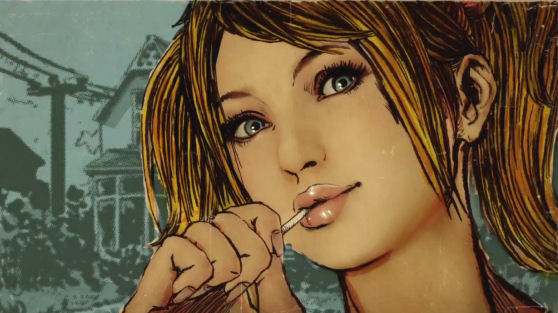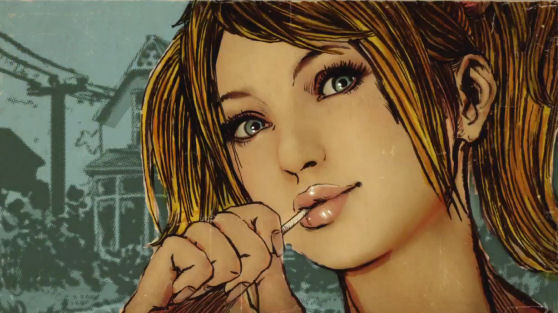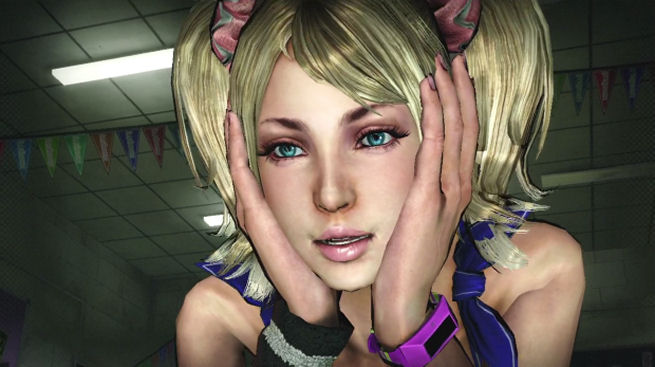When the world first learned about Grasshopper Manufacture’s peppy action game Lollipop Chainsaw last year, more than one person connected the dots back to Buffy Summers, the Chosen One and all-around blonde bombshell who could deliver a roundhouse kick straight to your heart. Both are platinum beauties. Both enjoy decapitation and high school cheerleading. Both slay the undead. For Juliet, it’s zombies. For Buffy, it’s vampires and anything without a soul.
But Buffy came first, debuting on film in 1992 and later television, and she set an example far different than the one Juliet Starling embodies in Lollipop Chainsaw. Through show creator Joss Whedon’s feminist sensibilities, Buffy becomes more than a dream girlfriend — she plays sister to one, friend to many, and a role model to countless others. Sure, she chewed on a lollipop and wore miniskirts like Juliet (think back to Season One), but appearances do not make two characters evenly matched. Buffy deals with real death — the kind that wounds so deeply you don’t carry your boyfriend’s head around with you and use him to smack foes. She sacrifices herself for the good of the world and always comes back fighting.
For Juliet Starling to be a force as noble and unstoppable as Buffy Summers, she has to do a lot more than look hot in a tight outfit. She has to make us care about the difference between good and evil and show us that saving the world takes more than a chainsaw and someone bold or stupid enough to wield it. It takes a hero — and, in this case, a girl to inspire us, impassion us, and make us forget about gender and blonde jokes.
So, does Juliet amount to more than pom poms and glitter, or is she just another pretty face?
“Juliet is sweet and strong,” says Tara Strong, the voice of Juliet in Lollipop Chainsaw. “She has a real teenage quality in her, being hard on herself for having a ‘big butt’ and things like that. But then she can chainsaw someone in half…She’s the ultimate brave heroine, with a ton of fun girlie attributes. She always looks good, even when she gets splattered with blood.”
The problem is it seems nearly impossible to talk about Juliet’s redeeming personality and charm without mentioning her looks. Even the game’s developers focused less on Juliet’s brains than they did the zombies’, instead giving her a closet full of costumes and signing two cosplayers, one American and one Japanese, to play her in promotions.
Then the “Special Edition” live-action trailer hit the web in May.
In the video, marketing executive Ken Portman invites three of the game’s most “loyal and enthusiastic fans” to preview the special edition of Lollipop Chainsaw. He offers the teenage boys a chance to actually get their hands on a life-sized Juliet (cosplayer Jessica Nigri) and make her do whatever they dream up.
The most “enthusiastic” of the three starts counting the ways he’s going to play with Juliet after taking her home. His blatant sexual perversion, hardly decipherable through a storm of expletives, even makes his friends uncomfortable — not to mention Juliet herself. But she’s only a doll and does what they tell her to with a reassuring smile. It’s no small wonder the commercial (and its mildly less suggestive “Zom-Be-Gone” video counterpart) caused a stir in gaming communities.
Buffy fans may recall a handful of episodes involving a sex doll version of Ms. Summers (Season 5, Episode 18, “Intervention”) that one character had commissioned because he couldn’t satisfy his desire and love for the real version.
“Do I think that as a plotline it was somehow antiwoman?” says Lily Rothman, whose essay about the television show appears in the recent Joss Whedon: The Complete Companion from Titan Books. “Not really. There was never any implication, that I remember, that the bot could hold a candle to the real Buffy. If anything, it just shows how much more there is to the character beyond fighting and sex.”
After seeing the Lollipop Chainsaw live-action trailer, Rothman compares and contrasts Juliet and Buffy, looking beyond what she calls “superficial similarities” and pointing out the differences.
“Buffy isn’t fighting for a man, even though there are instances in which she does,” Rothman says. “She fights because it’s her destiny. She also doesn’t do it alone. And while she sometimes wore revealing outfits, mostly way-’90s thigh-high boots and miniskirts, she didn’t dress or act in that sort of way. This video game seems designed very much for the male gaze.”
Is there more to Juliet than “fighting and sex?” Did developer Grasshopper Manufacture mold a girl out of plastic parts, or did they create her with real flesh, blood, and bone?
Lollipop Chainsaw story writer and Hollywood filmmaker (Slither, Super) James Gunn believes the latter. Similar to Buffy’s destiny as the Slayer, Juliet has “been trained to kill since she was a baby,” he says. “I think we’d all have a different perspective on the world if that was our situation.”
Back in January, Gunn told IGN that Juliet has “an innocence about her that’s completely unique.” In relation to Juliet, who dresses in skimpy outfits and appears in life-size doll commercials, what does that mean?



